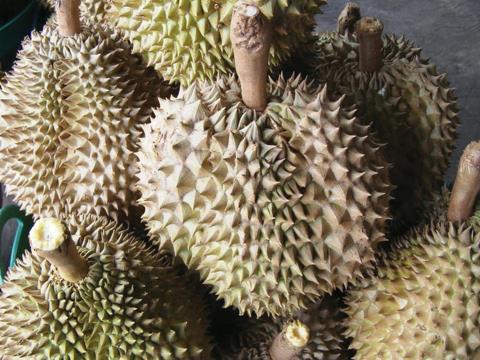Thai and Chinese governments meet to discuss issues arising from China’s rejection of contaminated durian

Thailand’s durian industry has urged its government to advocate for improved export conditions to China as the season starts to ramp up.
According to local media reports, growers and exporters have expressed their frustration with the new export requirements imposed by China after it detected contaminated durian at the start of 2025.
Under new regulations by the General Administration of Customs of the People’s Republic of China (GACC) all Thai durian bound for export to China must be accompanied by documentation certifying the absence of Basic Yellow 2 (BY2).
According to the Bangkok Post, Ekaphap Phonsue, spokesman for the Ministry of Agriculture and Cooperatives said reports that no labs in Thailand are left to provide checks on durian before export due to suspensions by China were incorrect.There are still four labs available, with five more awaiting approval from GACC.
Phonsue said Thailand has also asked that China ease the checking process on durian from Thailand.
According to The Nation Thailand, from 15 April onwards, large-scale buyers have begun suspending durian purchases from local farmers while awaiting further actions from the Thai government, which is set to meet with the Chinese government on 8 April.
Sanchai Puranachaikiri, advisor to the Thai Fruit Traders and Exporters Association, told The Nation this had become a national issue.
“This is no longer a problem solely under the Ministry of Agriculture and Cooperatives. It has escalated into a national-level issue. To be fair, the Ministry of Agriculture has been actively addressing the situation. However, at this point, the BY2 issue has evolved into a political matter at the national level,” said Puranachaikiri.
“We recently discovered traces of BY2 in cardboard boxes, which has made the situation feel hopeless. This substance disperses easily – even just 2 micrograms is problematic. But the Chinese government has set the allowable level at zero. When you consider that the boxes are made from recycled paper, it makes sense that some dyes could be present. If we keep trying to solve the problem with quick fixes, we won’t get anywhere. Diplomatic intervention is now necessary, because the current conditions imposed by China are nearly impossible to meet.”
Puranachaikiri said the industry also needed more confidence in the testing process as well.
“As for the lab closures, there must be transparency— the lab closures should be accompanied by measures specifying how many times a test result can be incorrect before a lab is shut down. There should also be clear details provided to the Ministry of Agriculture, not just an order to close the lab without further explanation,” he said.



